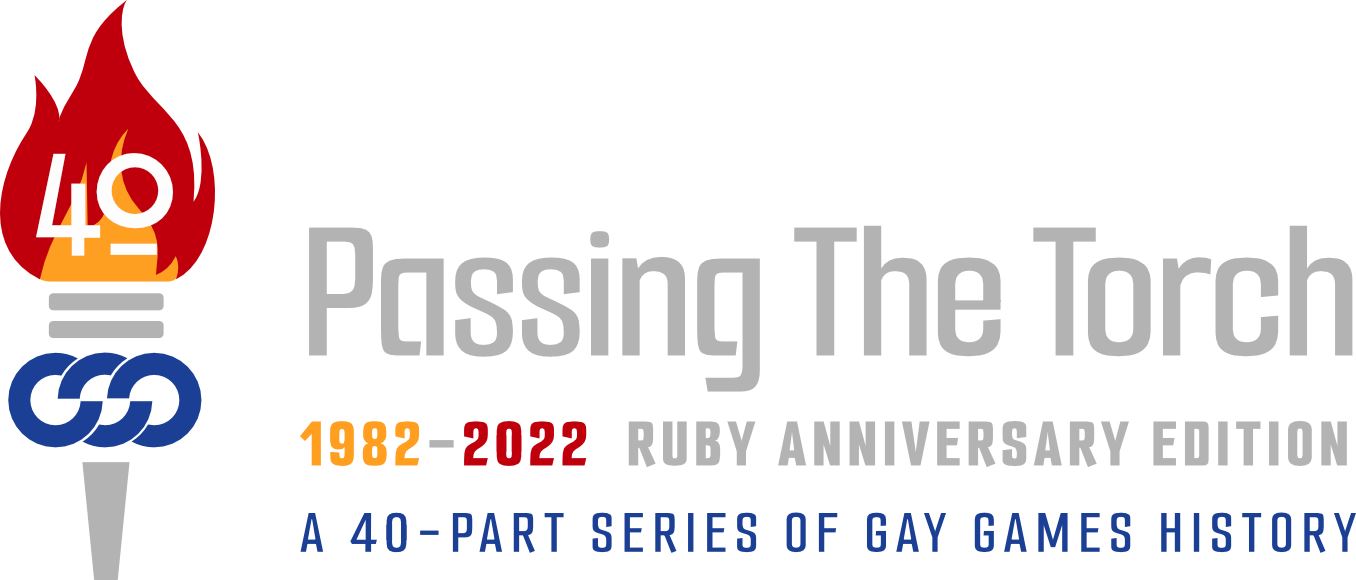
Produced and curated by Federation of Gay Games Archivist Doug Litwin and FGG Honourary Life Member Shamey Cramer
with Ankush Gupta, FGG Officer of Communications
Read the entire "Passing The Torch" series as it is posted daily HERE.
Post 13 of 40 - 9 August - Johannesburg Annual Meeting and USOC Injunction
“Passing The Torch: Ruby Anniversary Edition” is a factual timeline of the major events that have been part of the Gay Games evolution since its inception. The series will run from 28 July 2022 - one month before the 40th anniversary of the original Opening Ceremony at San Francisco’s Kezar Stadium - through 5 September, the anniversary of Gay Games I Closing Ceremony. All postings will remain online and available for viewing at the FGG website.
* * *
RICHARD HOGAN: As part of my responsibilities as FGG Vice President, I acted as liaison between the FGG and the local communities hosting our Annual Meetings. I had the pleasure of working with many dedicated people from around the world as they did their best to promote the Gay Games movement. Much of our time and energy was spent on logistics for a successful meeting but also everyone wanted to present their city to the visiting delegates as a worthwhile destination. I have always been (and continue to be) an advocate for the FGG General Assembly to meet face-to-face. There is much to gain from spending time together, building relationships as we strive to produce the best Gay Games possible.
One special moment which comes to mind was in Johannesburg, South Africa during the FGG 2001 Annual Meeting. It was only a few months after the 9/11 attack on New York City. Many of us, myself included, were anxious about flying such a distance for the meeting. It was a site selection meeting for Gay Games VII so the final bid teams from Atlanta, Chicago, Los Angeles and Montreal added to the numbers. At the end of the week everyone attended a reception at one of the most famed cricket grounds in the world, The Wanderers Stadium. Not only were there rainbow colours on the solo artist singing the South African national anthem on the centre of the cricket ground, we were viewing her from the Member’s Club Room. It was amusing to see framed photographs of so many white men on the walls. We were entertained by two Johannesburg LGBT choirs, one all white and the other all black. After each group sang they joined together for what I believe was the first time. It was such a joyous occasion!
* * *
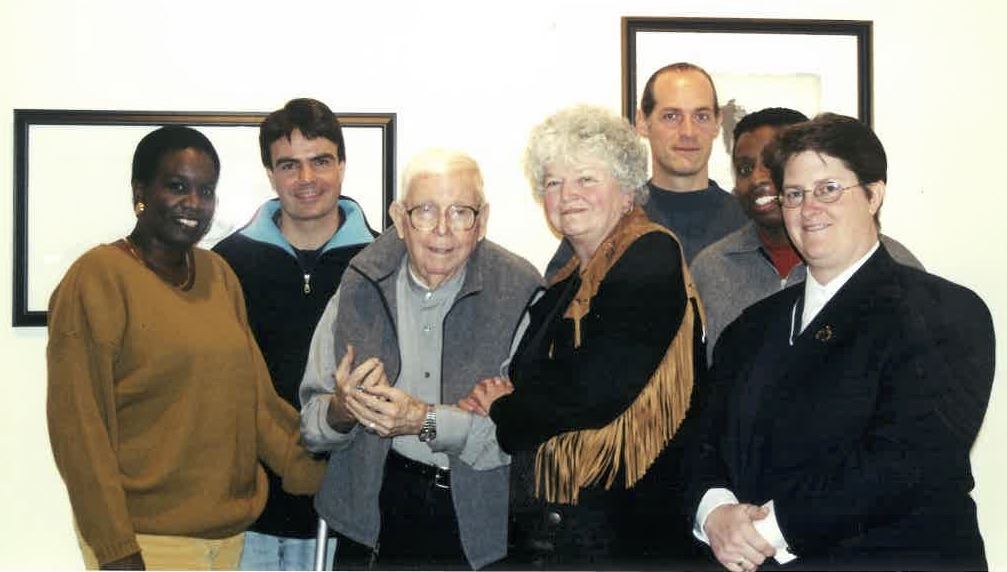
GGVI: Sydney 2002 Registration Party hosted by LA 2006, Inc. (Gay Games VII bid finalist),David Bohnett CyberCenter, Ed Gould Plaza, Los Angeles Gay & Lesbian Center, mid-2001. L-R: Board members Barbara, Karl Lott, Honourary Co-Chairs Morris Kight (the Father of the Los Angeles queer community) and Author-Athlete-Activist Patricia Nell Warren; and Board members Shamey Cramer, Christine Nelson and Denise Seifried.
SHAMEY CRAMER: When I contacted the FGG in April 2000 to see about submitting a bid to have Gay Games VII in Los Angeles, I had no idea what a wild ride it would be. The two individuals I had contacted to do public relations and fundraising for us decided to do their own bid. Given how poorly structured the bid documents and rules were at that time, they threatened the FGG with a lawsuit if they weren’t allowed to submit a second bid from the same city. Our bid prevailed and made it to the final round. Then, citing philosophical differences, four of our five Executive Board members resigned en masse in September 2001. One week later, the events of September 11, 2001 unfolded, shutting down all air travel, just weeks before the meeting in Johannesburg.
I remember flying into Cape Town, and looking out the window, seeing the southern coast of the African continent. In that moment, I was able to truly pinpoint my place on the planet. Regardless of the outcome of the bid, life would go on.
During the final question and answer session with all four bid finalists represented, much was made about the $100,000 check Montreal flashed as a way to say they were financially solvent. As crass as some people saw that move, it succeeded in them being selected to enter negotiations with the FGG.
I returned to Los Angeles and after a sixteen year hiatus, I once again stepped into the role of Team Los Angeles Co-chair, this time preparing nearly 700 registrants to participate in Gay Games VI: Sydney 2002.
* * *
.jpg)
Anthony Alston at Gay Games VIII 2010 Cologne
ANTHONY ALSTON: My thread in the CHEER SF legacy fabric begins in 2001. I was a recent transplant from my hometown Seattle, WA to Los Gatos, CA, a suburb of San Jose. In the name of love, I quit my city job as an event manager at the KeyArena and relocated with my “not long after” ex-partner to the South Bay Area. I had no friends, no job and my ex worked away from home frequently. I saw CHEER SF at San Jose Pride and was instantly wowed! I’ll never forget hearing Sanford Smith announcing that they were recruiting “bases” for their 2001-2002 season. I always wanted to be a cheerleader but I was a “band geek” and never thought of myself as “athletic”. My commute to weekly practices was brutal; up to two and half hours on the way up and an easy hour on the way back. After my first performance on the San Francisco Pride stage I was hooked! I had accomplished something greater than myself. Raising money for our community and giving it my all in the hardest two and a half minutes of my life.
Unfortunately, due to my rocky relationship with my former partner, I missed CHEER SF’s trip to GGVI: Sydney 2002. Although my relationship did not endure, I am very grateful for the Divine’s alignment to ensure my path to charitable cheerleading and ultimately to the Gay Games. The team came back energized like I had never seen before. My teammates were already planning to save for the next Gay Games which was still four years away. We stepped up our game in both performance and fundraising. It was during this time that twin teams CHEER Los Angeles and CHEER New York began to flourish. CHEER LA would join us each year for SF Pride but CHEER NY’s Pride weekend was the same as San Francisco's so we always sent them well wishes from afar. Meanwhile, new teams in Chicago, Sacramento, Edmonton (Canada) and Atlanta began forming. These were the early conversation years of forming PCA - the Pride Cheerleading Association.
. * * *
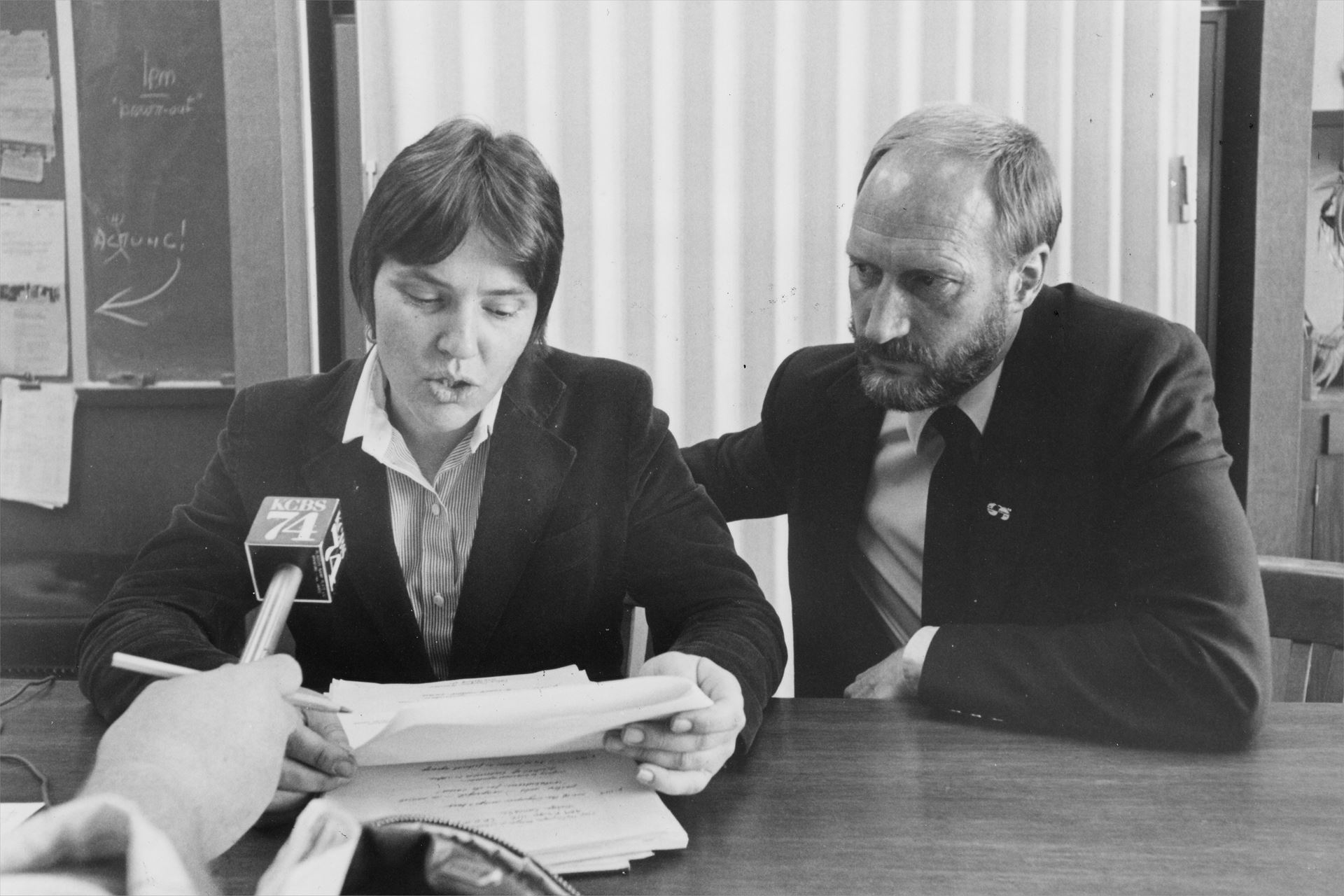
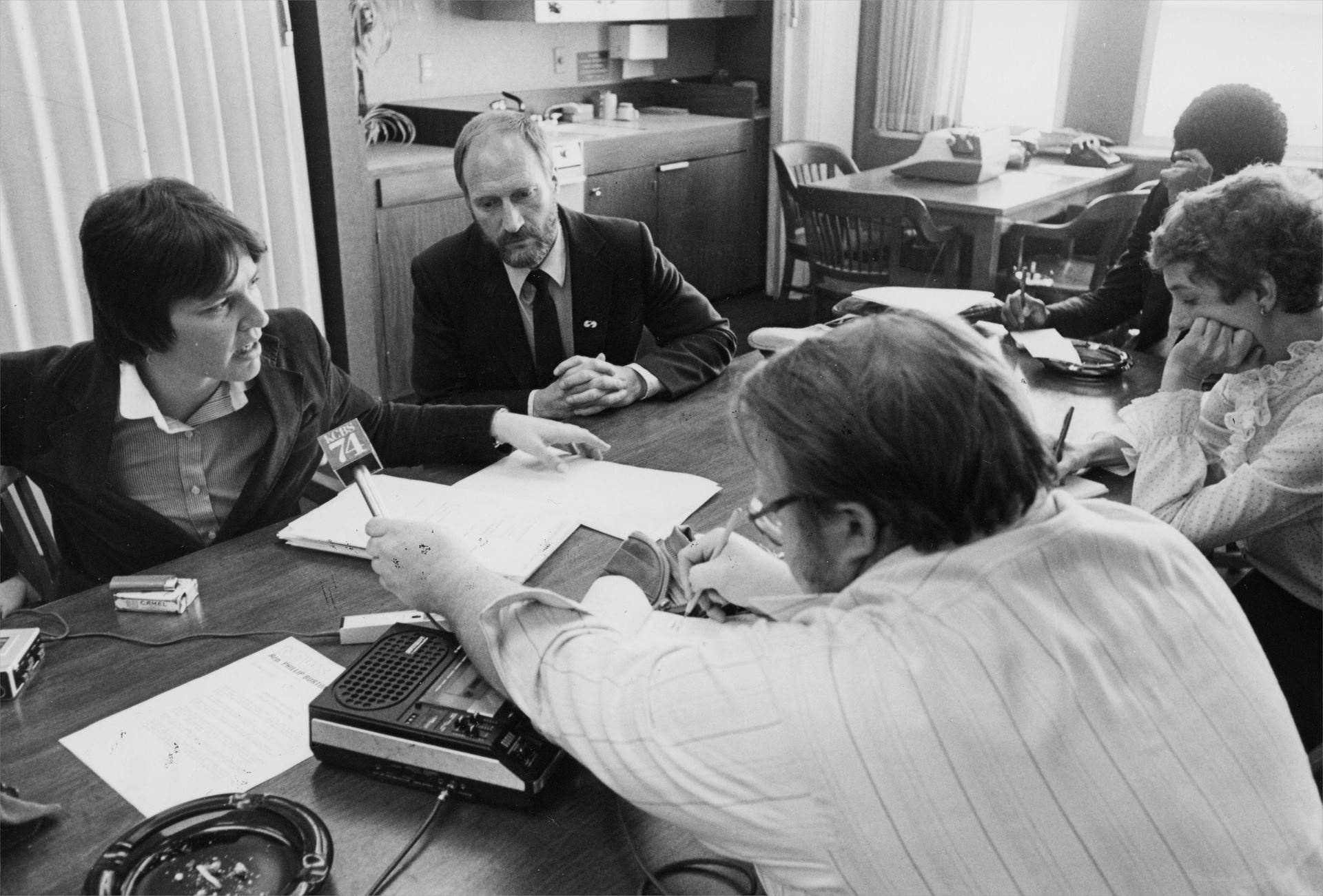
Attorney Mary Dunlap and Tom Waddell holding a press briefing regarding the USOC injunction
1982 - USOC injunction upheld
When Tom Waddell competed in the 1968 Olympics, he spoke out in support of his Team USA teammates Tommie Smith and John Carlos for their silent Black Power demonstration on the medals stand, Colonel Don Miller, the military liaison for the US Olympic team, threatened Tom Waddell, an active member of the U.S. Army, with court-martial. Five years later, Miller became Executive Director for the U.S. Olympic Committee.
In 1978, after more than a decade of lobbying by IOC President Avery Brundage, Congress passed the Amateur Sports Act. In doing so, the US Congress gave exclusive rights, including copyright, trademark and branding rights.
When Waddell, Mark Brown, attorney Mike Evans, and the others created San Francisco Arts & Athletics in 1981, they originally attempted to file their incorporation papers with the State of California under the name “The Golden Gate Olympic Association.” However, California corporate regulators disallowed it, citing the 1978 Amateur Sports Act. Thus, on 4 November, their documents were certified with the name “San Francisco Arts & Athletics.”
Unbeknownst to the SFAA Board, Tom wrote to Colonel Miller informing him of their intent to call their event the Gay Olympics. In the letter, Waddell stated:
“When we originally filed our articles of incorporation in Sacramento, California, we were told we could not use the name “Olympic” in our corporate name or logo. We thus became “San Francisco Arts & Athletics…”
We recently heard indirectly that we could not even call our athletic contests the “Gay Olympic Games,” at least not without permission from the United States Olympic Committee… were only aware of the word “Olympic” as a generic term, referring to an event that predated Christ… were also aware that there were “Armchair Olympics,” “Special Olympics,” “Handicapped Olympics,” “Police Olympics,” even “Dog Olympics.” There are also 33 listings in the San Francisco phone book using the term “Olympic.”
Colonel Miller, these games are very specialized indeed. Our outreach and emphasis differ widely from the traditional Olympic Games in that we, openly gay people around the world, are struggling to produce an image that more closely resembles the facts rather than some libidinous stereotype generated over decades of misunderstanding and intolerance…
Some things are changing. Homosexuality is not something that needs to be “understood,” any more than one’s taste in food can be understood; it is simply something that needs to be accepted.
We feel strongly that the term “Olympic” is integral to what we intend to achieve. Our eight days of cultural events and sport will be a testament to our character and wholesomeness; arts and athletics within the ancient Olympic format.
If permission, according to law, is a necessity, then we hereby apply for such, and assume that you will be fair in view of the precedents already set. We, in turn, will demonstrate our gratitude in ample ways as the 1984 Olympic Games of Los Angeles draw closer.”
Although Tom didn’t inform the SFAA Board of Directors that he had sent the letter, he did send copies to California Senator Alan Cranston, Governor Jerry Brown, San Francisco Mayor Dianne Feinstein, and the San Francisco Board of Supervisors.
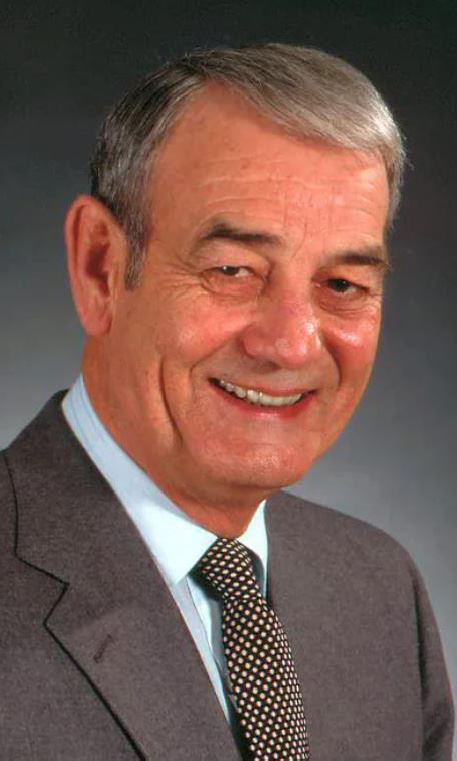
Colonel Don Miller
Colonel Miller issued two written requests and spoke with Waddell on the phone, insisting SFAA remove the word "Olympic" from all Gay Games promotional material, citing the 1978 Amateur Sports Act.
Tom then began reaching out to various legal entities that would be sympathetic to his cause. In February 1982, he reached out to the American Civil Liberties Union where his fellow Olympian Susan McGreivy (Swimming, Melbourne 1956) served as their sole litigant. She referred Tom to Mary Dunlap, a San Francisco based attorney who would go on to represent the case when it went to the U.S. Supreme Court. Waddell and SFAA also decided to continue using the word "Olympic" against Miller’s objections, citing that SFAA had the same rights as all others invoking Olympic terminology without permission.
.jpeg)
Tom Waddell protesting the USOC's actions against the Gay Olympic Games
On 9 August 1982, the USOC was granted a writ for a temporary restraining order under the Amateur Sports Act, with USOC attorney Vaughan Walker, replying, "They are not a suitable group." Interestingly, Walker, himself a gay man, would later serve on the U.S. District Court for the Northern District of California where he presided over the original trial in Hollingsworth v. Perry, where he found California’s 2008 Proposition 8 to be unconstitutional.
* * *
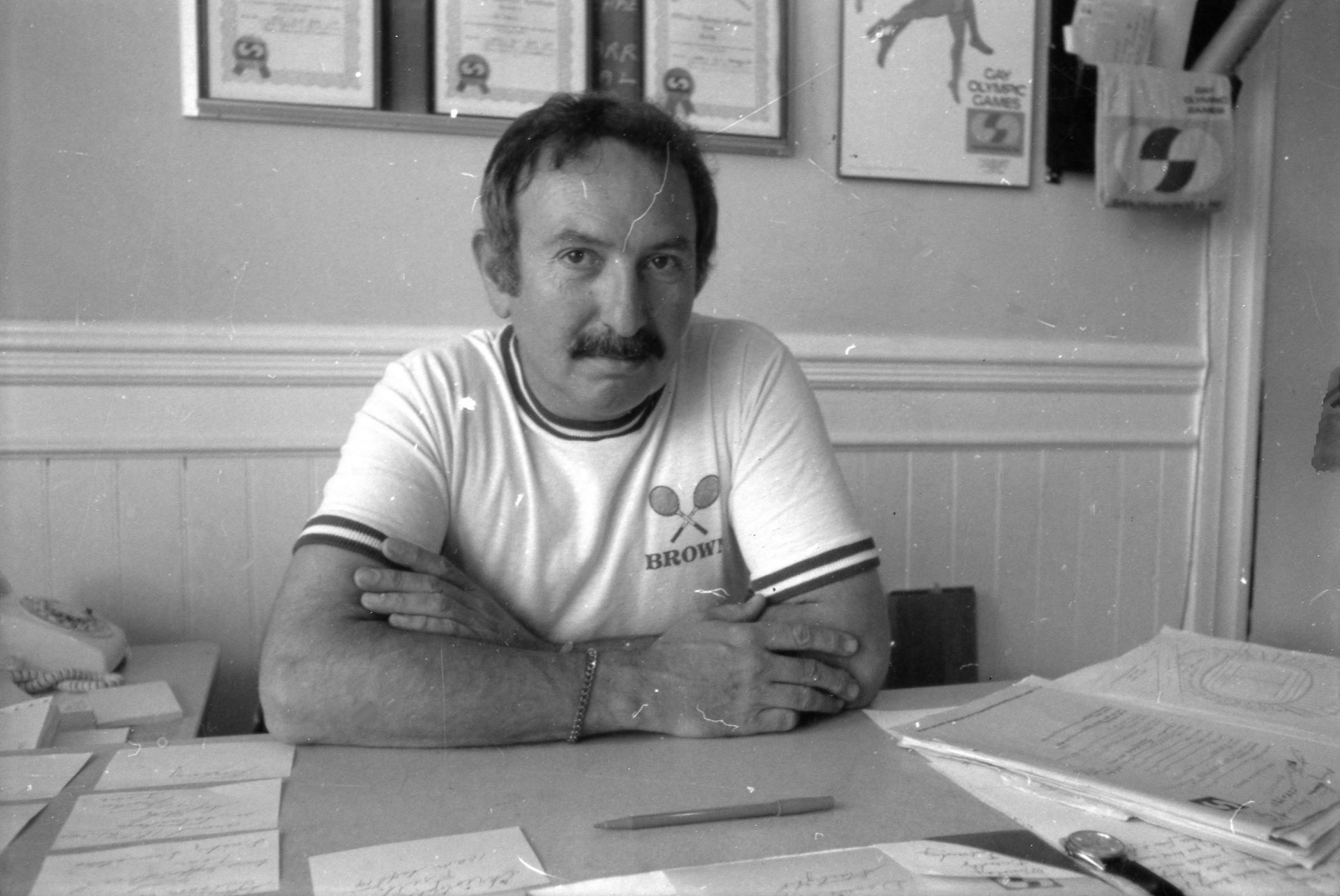
Mark Brown in Gay Games I office
MARK BROWN: The Board didn’t know about Tom sending the letter to the USOC informing them of our use of the word "Olympic" until we received the response from the USOC forbidding us to do so. That wasn’t the first time Tom had done something without informing the committee first.
But he and Miller had a history, so I really do think sending that letter was another way for Tom to rub their noses in it. Tom couldn’t compete as an openly gay Olympian in 1968 because he was a member of the U.S. Army, but he sure was out not long afterwards. He was in the media enough times using his Olympic status as an out gay man in the 1970s, it definitely would have been noticed by Miller and the other Olympic executives. And they would not have been very happy about it, to say the least.
* * *
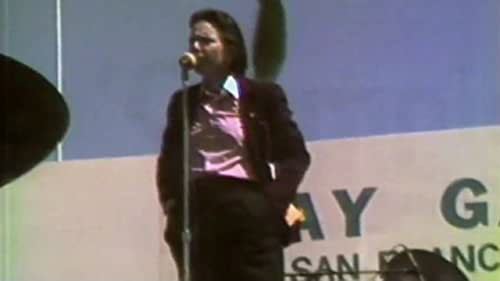

Mary Dunlap, speaking at Gay Games I and in front of the US Supreme Court
Heroic attorney Mary Dunlap, who fought the US Olympic Committee alongside Tom Waddell all the way to the US Supreme Committee passed away in 2003.
To read an excellent obituary of Mary Dunlap from the 5 February 2003 issue of Windy City Times, click HERE.
Below are a few excerpts from this obituary which recounts Mary's efforts versus the USOC:
The confident woman in a navy blue Pendleton skirted suit and heels would not back down. The date was March 24, 1987, the place was the nation's highest court, and the woman was Mary Dunlap, a 39-year-old attorney who lived by Eleanor Roosevelt's motto, "No one can make you feel inferior without your consent."
The first open lesbian to argue a gay case before the U.S. Supreme Court, Dunlap told the justices that the U.S. Olympic Committee was violating the Constitution by stopping a gay group from calling itself "the Gay Olympic Games."
In small and big ways, Mary demonstrated the difference that one person can make. But she saw herself not as star, but as a relay runner, one of countless caring people fighting to make the world better. When few gay people had the courage to be out, Mary was already battling for gay equality—in courtrooms, in the streets, in her neighborhood. Her message to each of us is to stop being a spectator, to live each day eager to run with the symbolic baton that will let us advance toward equality.
While few of us will ever argue before the Supreme Court, we are offered precious opportunities each day to demonstrate that gay people should be treated with respect and fairness. Even the seemingly smallest act— putting a picture up of our partner at work, for example—can have wonderful ripple effects.
- Permission to share these excerpts provided by Publisher Tracy Baim
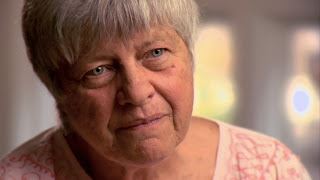
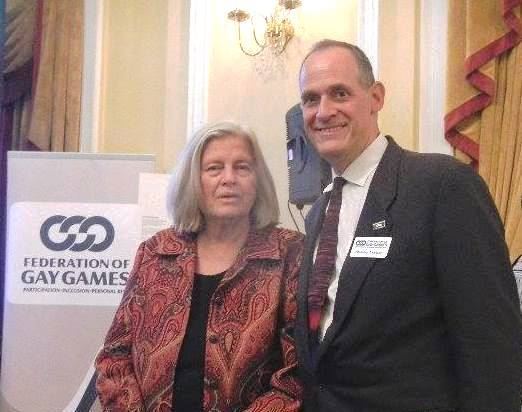
(Top) Susan McGreivy, US Olympian, Gay Games I participant, and ACLU attorney, helped defend the Games against USOC. Photo: Aquarius Media.
(Bottom) Susan McGreivy with Shamey Cramer, 2013 FGG annual meeting in Cleveland
To see an excellent interview with 1956 Olympic Swimmer and attorney Susan McGreivy regarding the USOC lawsuit, click HERE

An award-winning 2009 documentary called "Claiming the Title: Gay Olympics on Trial" was made about this case. See the trailer for this film HERE.
* * *
Read the entire "Passing The Torch" series as it is posted daily HERE.
